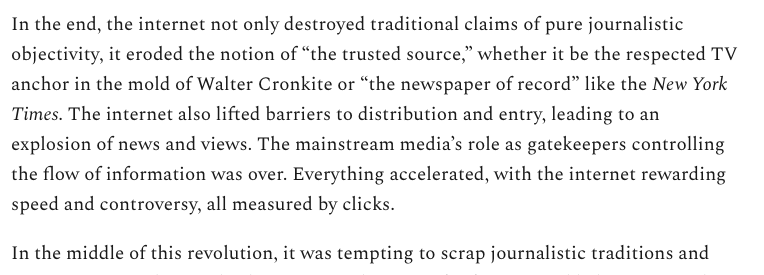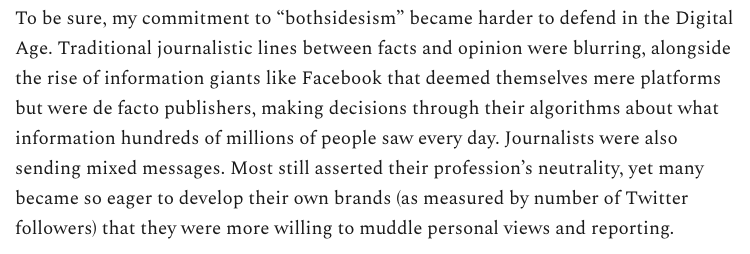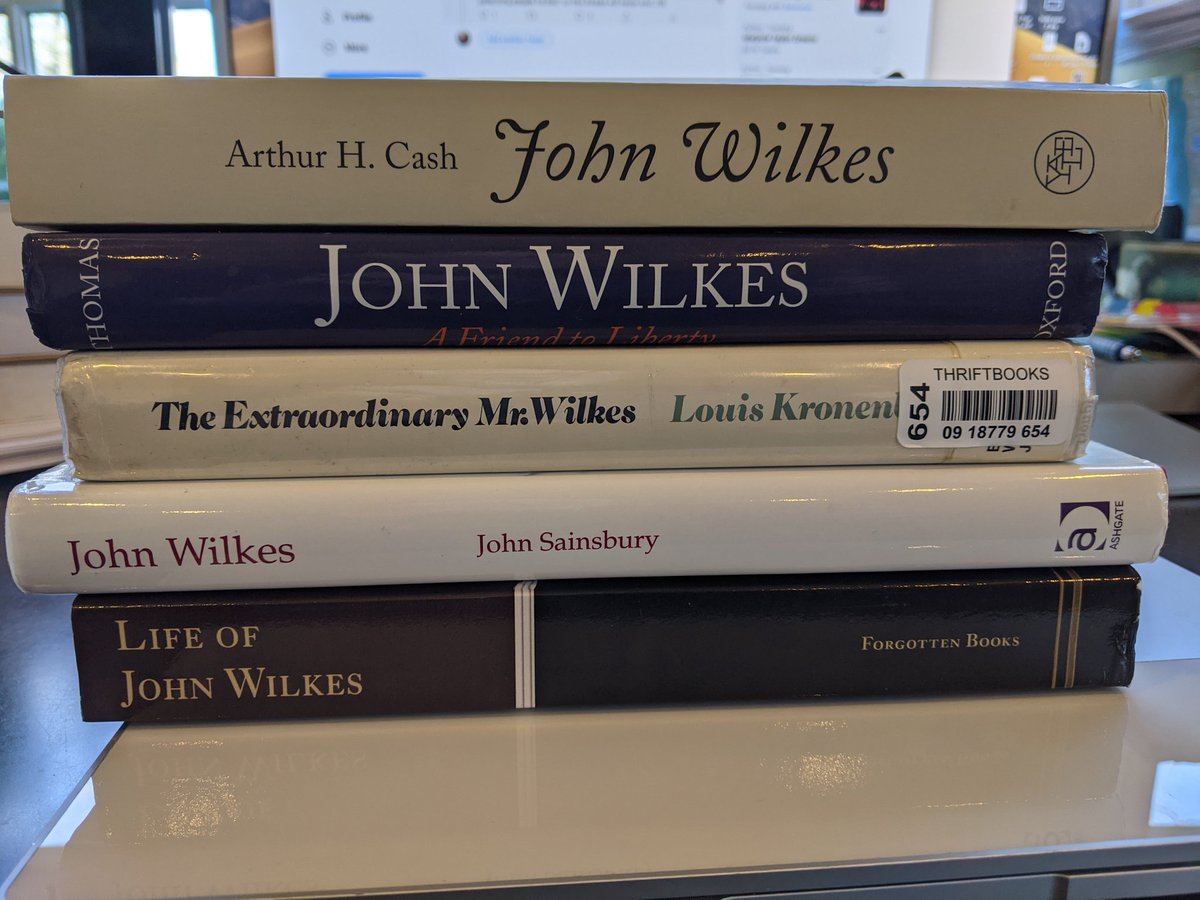
Oh, my. Former FT Editor @lionelbarber defends bothsideism, impartiality, objectivity and other recent journalistic tradition.
persuasion.community/p/lionel-barbe…
persuasion.community/p/lionel-barbe…
In it, @lionelbarber laments the loss of trust in Walter Cronkite; "newspaper of record." That was trust imagined by the institution & limited to white privilege & power. Now, on the net, we hear people never included in the institution, who never trusted it. See: #BLM, #metoo 

Barber quotes @WesleyLowery, which is good, but misses his point: that these institutional notions of objectivity, impartiality, trust were fictions those in power told themselves because they had the power to do so. It was journalism's fatal tautology. 3/
The bothsideism Barber defends was an invention, too, aimed at securing power journalism's hold on its claims of objectivity, &c. Of course, I advocate completeness, fairness, accuracy, openness. But then I advocate judgment. 4/
One irony of the age is that journalists are demanding that platforms make judgments that journalists themselves--like Barber--refuse to make. That is not onesideism. It is a sin of journalistic omission. What do I mean by that? 5/
Journalists were afraid to judge Trump's sanity, his lying, his criminality, his competence, his character. Bothsideism & objectivity led to hiring Hugh Hewitt or having Kellyanne booked on air. 6/
Journalists were and are also afraid of judging the systemic racism and inequity in society's other institutions. How, after COVID, George Floyd, Trum, & 2020 can that continue? To not report on & call out these ills is journalistic malpractice. 7/
To seek out the "other side" regarding racism, inequity, and crime--hallmarks of Trump's reign--is to amplify these ills, to normalize them. Thus, The Times tells us a Nazi wears khakis & goes to Panera just like real people. That, too, is journalistic malpractice. 8/
Says Barber: "But reporting—reflecting what other people think or say—does not amount to an endorsement of a particular point of view." If Zuckerberg or @jack said that, media would draw and quarter them. Journalism? Oh, that's our job. 9/
Reflecting "what other people think or say" without necessary context--judgment--merely amplifies their thoughts, regularizing lies & racism. Note that I want the same thing from both journalists & platforms: judgment. Both are allergic to it, but one demands it of the other. 10/
Barber is a damned good editor, wicked smart, impeccably informed. Same for his old paper. But we need to discuss journalism's shibboleths and failures in the same breath without relying on the kinds of obvious tactics he lists. 11/
This old journalism failed America and Britain. The evidence: Liars & their lies took over both nations. Now is the time for us in journalism to examine that failure with brutal honesty and to imagine a new journalism that will not fail our societies again. We must learn. 12/
So consider all this another side to Barber's ringing of the bells in journalism's church tower. Consider it my bothsideism. 13/
This is where the journalists says: I am not like you. I saw that the president of the United States was mad, bad, and dangerous. But my professional speciality is in muting that judgment for the sake of a fair hearing -- of madness, badness, and danger. 14/ 

To be clear, I, too, am asking for reporting to back up those judgments. I have been dying for journalists to talk with psychiatrists to diagnose Trump's madness but our field ignored it instead. Why? Fairness? Balance? This, I believe, as our greatest malpractice. 15/
Here, Barber accuses journalists who enter into dialog with the public, now possible on social media, of seeking fame. Odd thing for famous editors to say. To "muddle personal views" could also be called openness and transparency, which some also call journalistic virtues. 16/ 

It's not just the diversity in our newsrooms. It is the quality of our coverage, the fact that we did not report what happened to Black Americans every day until #LivingWhileBlack showed us and did not report on murderous inequity in health care until COVID showed us. /17 

Confessing our chronic sin regarding diversity in newsrooms is only a first, tiny step. Fixing it is a next step. Acknowledging the resulting failures in journalistic coverage is the next big step necessary before fixing that. /18
And don't get me started on viewing treatment of James Bennet and Bari Weis as "intolerance and censorship" and "activist journalism [that] risks polarizing people further" or this thread will never end. /19
But now I'm going to leave you to write a piece of a chapter about John Wilkes, a journalist who would make modern editors' blood curdle but whom they have to thank for so much of the freedom of the press they enjoy today. /fin /maybe
• • •
Missing some Tweet in this thread? You can try to
force a refresh



